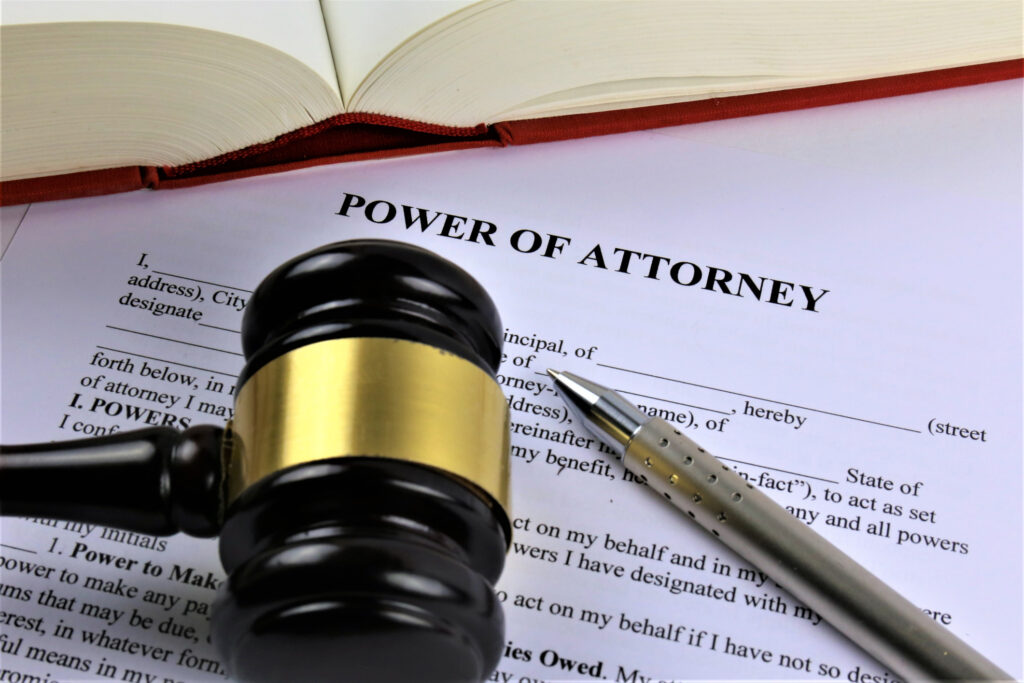A power of attorney (POA) is one of the most important legal tools you can set up to protect yourself and your loved ones. It allows you to designate someone you trust—known as your agent or attorney-in-fact—to make decisions on your behalf if you are unable to do so. But many people wonder: Do I need a lawyer for a power of attorney?
The answer depends on your personal situation, the complexity of your estate, and the laws in your state. While some people can handle drafting a simple POA themselves, most will benefit greatly from working with an attorney. This article will break down what a power of attorney is, the risks of going it alone, and why professional legal guidance can save you time, money, and stress in the long run.
What Is a Power of Attorney?
A power of attorney is a legal document that authorizes another person to act on your behalf. There are several types of POAs, each with a specific purpose:
- General Power of Attorney: Grants broad authority to make financial and legal decisions.
- Durable Power of Attorney: Remains valid even if you become incapacitated.
- Medical or Healthcare Power of Attorney: Lets someone make medical decisions for you if you cannot.
- Limited or Special Power of Attorney: Authorizes someone to handle specific tasks, such as signing documents during a real estate closing.
Because these documents give another person significant power over your finances, healthcare, or property, drafting them correctly is critical.
Can You Create a Power of Attorney Without a Lawyer?
Technically, yes. Many states offer standard forms that individuals can fill out on their own. These forms often require signatures, witnesses, or notarization to be legally binding. If your needs are straightforward—for example, appointing a spouse or adult child to handle simple financial matters—you might be able to use one of these forms without professional help.
However, even in simple cases, mistakes are easy to make. An error in wording or failure to meet state-specific requirements could invalidate your POA. This means your wishes might not be honored when they matter most.
Why Hiring a Lawyer for Power of Attorney Is a Smart Choice
Hiring a lawyer for a power of attorney can:
1. Ensure Compliance With State Laws
Every state has its own rules about how powers of attorney must be drafted, signed, and witnessed. A lawyer will ensure your document complies with these laws, preventing it from being challenged later.
2. Tailor the POA to Your Needs
Generic forms may not cover unique circumstances. A lawyer can draft a customized POA that fits your personal situation, whether you own multiple properties, run a business, or need specific medical directives.
3. Prevent Misuse or Abuse
Unfortunately, giving someone power over your finances or healthcare opens the door to possible abuse. A lawyer can help build safeguards into the document to protect you, such as requiring regular accounting of financial transactions.
4. Plan for Contingencies
What happens if your chosen agent cannot serve? What if you want different people handling your finances and your healthcare? A lawyer can help you plan for backup agents and complex family dynamics.
5. Provide Peace of Mind
Perhaps the greatest benefit of working with an attorney is the confidence that comes with knowing your document is valid, enforceable, and designed to protect your best interests.
When You Might Not Need a Lawyer
There are situations where drafting your own power of attorney may be sufficient:
- You have a very simple estate and few assets.
- You are naming a spouse or trusted adult child as your agent.
- Your state offers an official POA form and you are confident in filling it out correctly.
Even in these cases, it’s wise to at least have a lawyer review your document. The cost of a consultation is small compared to the potential expense of legal disputes later.
Consequences of an Invalid or Poorly Written POA
Failing to get legal guidance when it’s needed can have serious consequences:
Court Intervention
If your POA is invalid, your loved ones may need to seek guardianship or conservatorship through the courts. This process is expensive and time-consuming.
Family Conflicts
Ambiguities in your document could lead to disputes among relatives about who should make decisions.
Financial Risk
Without proper safeguards, an agent could misuse your funds, leaving you vulnerable.
In short, saving a few dollars upfront by avoiding legal help could end up costing much more in the long run.
Do You Need a Lawyer for a Power of Attorney?
If your situation is straightforward, you may be able to draft a POA on your own using state-approved forms. But for most people, especially those with significant assets, complicated family situations, or concerns about potential disputes, working with a lawyer is highly recommended. A well-drafted power of attorney ensures that your wishes are respected and your interests are protected if you can’t speak for yourself.
Final Thoughts and Next Steps
A power of attorney is not just a piece of paper—it’s a safeguard for your future and your loved ones. While it is possible to create one without a lawyer, professional guidance ensures that your document is legally sound, tailored to your needs, and designed to prevent problems down the road.
If you’ve been thinking about hiring a lawyer for a power of attorney, now is the time to take action. Our experienced legal team can help you create a power of attorney that gives you peace of mind today and security for tomorrow.
Contact the wills and trust attorneys at Koch & Associates today to schedule a consultation and ensure your future is in trusted hands.

